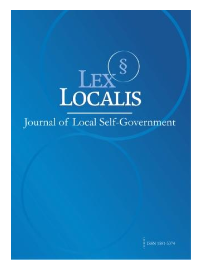REVISITING THE EDUCATION POLICY THROUGH GLOBAL LENS: EXPLORING THE MISSING AFFIRMATIVE ACTIONS IN NATIONAL EDUCATION POLICY, 2020
DOI:
https://doi.org/10.52152/800466Ključne besede:
Education, Policy, Affirmative Actions, Globalisation, CastePovzetek
This study highlights the intricate relationship between regional educational priorities and international reform initiatives by examining national and international education policy and framework. The analysis shows that different countries have different approaches. For example, Finland prioritises teacher professionalism and personalised learning with little standardised testing, the United States focusses on equity through standardised accountability measures, the United Kingdom maintains curriculum rigour with flexibility in implementation, and India prioritises holistic development and multilingualism in its National Education Policy (NEP) 2020.
Global frameworks headed by the World Bank, OECD, and UNESCO at the international level support common goals of equity, high-quality education, and lifelong learning through programs like the Education for All agenda and Sustainable Development Goal 4. These organisations support 21st-century skills like creativity, critical thinking, and digital literacy—all crucial for equipping students for a rapidly changing global economy—while facilitating policy transfer and benchmarking through tests like PISA.
This paper highlights important policy implementation issues, especially with regard to access to high-quality education in developing countries, where obstacles like political unrest, poor infrastructure, and poverty continue to exist. Due to inconsistent curricula, uneven funding, and differences in teacher preparation, educational quality gaps persist even in developed nations. Focus on integrating technology into education has increased due to the COVID-19 pandemic, which has brought attention to the digital divide that affects students in underserved and rural areas. Affirmative action in Indian education is a major topic of the analysis, which highlights conflicts between the larger Socio-Economically Disadvantaged Groups (SEDG) framework of NEP 2020 and conventional reservation methods. The policy's efficacy in advancing true educational equity for historically marginalised communities is called into question by its failure to specifically address caste-based discrimination.
The study comes to the conclusion that although local contexts continue to shape national education systems, global viewpoints that support sustainability, inclusivity, and technological advancement are having an increasing impact. International best practices must be balanced with cultural relevance, sufficient funding, and a strong political commitment to guaranteeing that all students around the world have access to high-quality, equitable education.
Prenosi
Objavljeno
Številka
Rubrika
Licenca
Avtorske pravice (c) 2025 Lex localis - Journal of Local Self-Government

To delo je licencirano pod Creative Commons Priznanje avtorstva-Nekomercialno-Brez predelav 4.0 mednarodno licenco.







